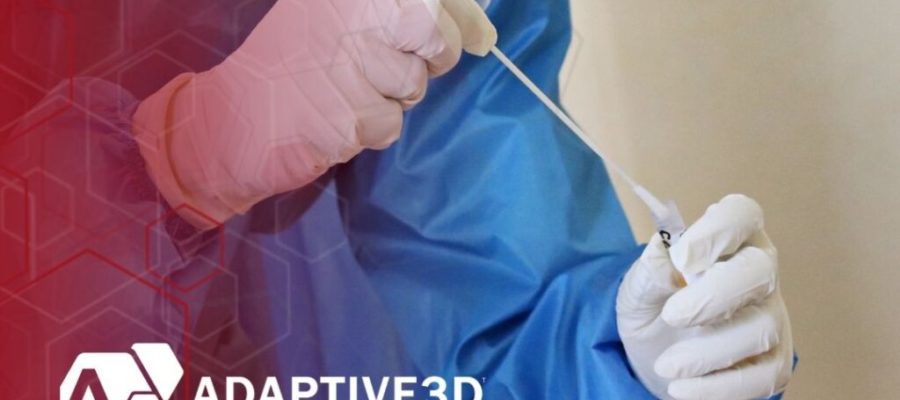The use of 3D printing technology to help fill the gap in the supply of PPE (personal protective equipment) throughout the COVID pandemic is well known. In addition to Proto3000’s own efforts, we find inspiration in how so many other organizations continue to develop and adapt 3D printing processes to help in the fight against COVID and other infectious diseases.
An Inspiring Example of 3D Printing Helping to Combat COVID
Here’s just one example of those efforts that is as inspirational as any. We recently learned of the efforts of University of Texas at Dallas (UTD) students in assisting with the development of a flexible, more accurate 3D-printed nasopharyngeal swab for infectious disease testing. The idea of developing the swab arose out of a swab shortage when the pandemic started in 2020.
According to a UTD media release, 3D printing company Adaptive3D, a UTD spinoff company, developed the photoresin used in the manufacture of the swabs. The resin is a rubber material that curves as its inserted in the nasal cavity.
Dr. Walter Voit is the developer of the initial technology that led to the photoresin. He is also an associate professor at UTD, and the founder and CEO of Adaptive3D.
Potential to Increase Testing and Reduce the Spread of Disease
If you’ve endured a nasal swab COVID test, you know how uncomfortable they can be. Fortunately, the new material reduces the discomfort. Best of all, it may increase the numbers and frequency of people receiving infectious diseases tests. Of course, that can have an impact on the spread of disease.
The Students’ Contribution
Two teams of engineering students in the UTDesign program were instrumental in developing two key components of the swab development. One team was tasked with designing the breakpoint for the rubber swab. That effort was instrumental in refining and confirming the performance characteristics of the swab
The second team develop an automated process to sort and assemble the swabs after manufacturing. That pioneering process won second place in the Student Manufacturing Design Competition at the American Society of Mechanical Engineers’ Manufacturing Science and Engineering Conference in June, 2021.
Adaptive3D continues to refine the swabs. According to Dr. Voit ““UT Dallas student research was an important component of this project. Innovation is the hallmark of progress, and through programs like UTDesign, we are able to tap into incredible student creativity and perspective built upon a firm fundamental, mathematical view of design and mechanical forces.”
Like we said. Inspiring.
